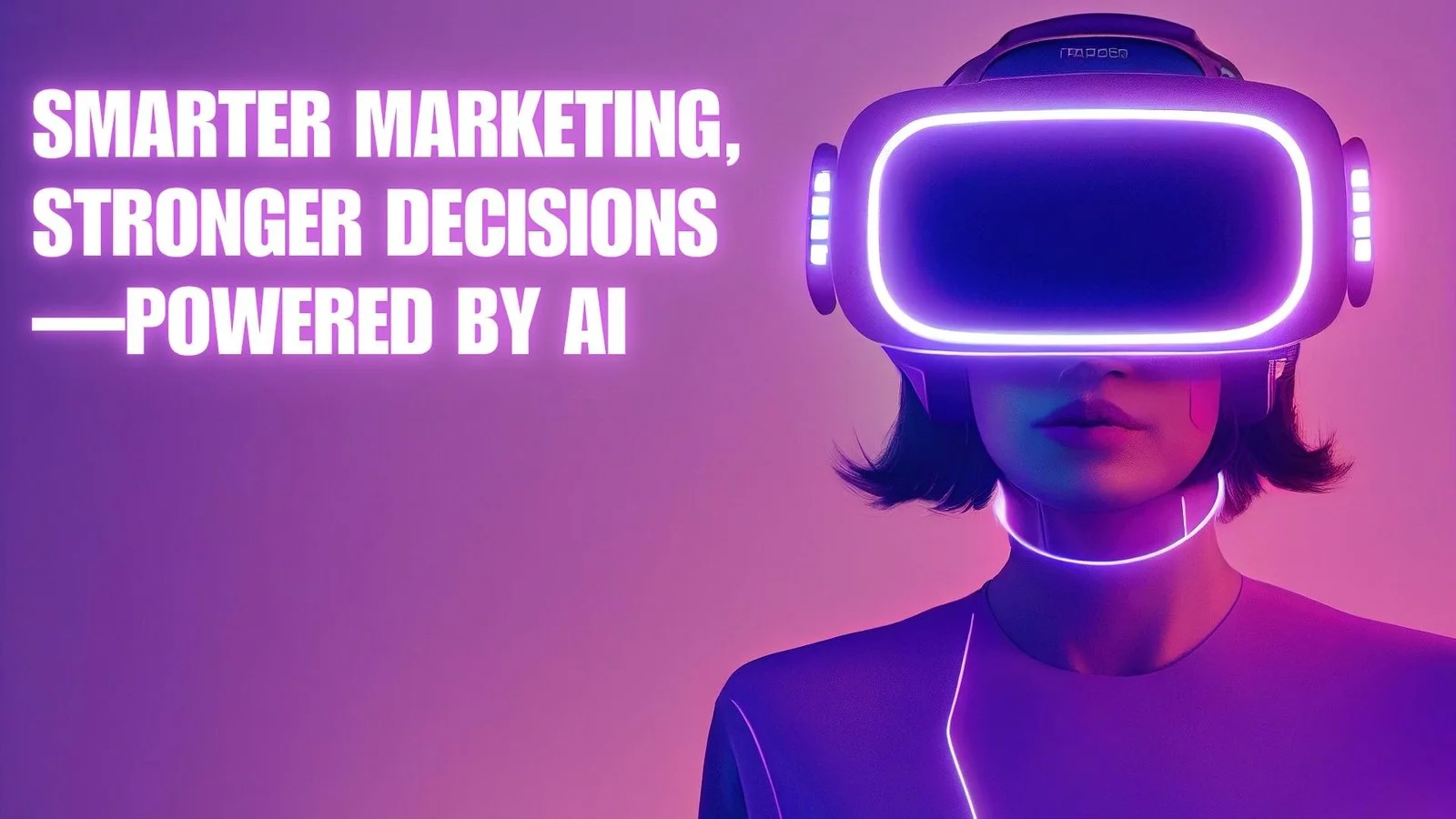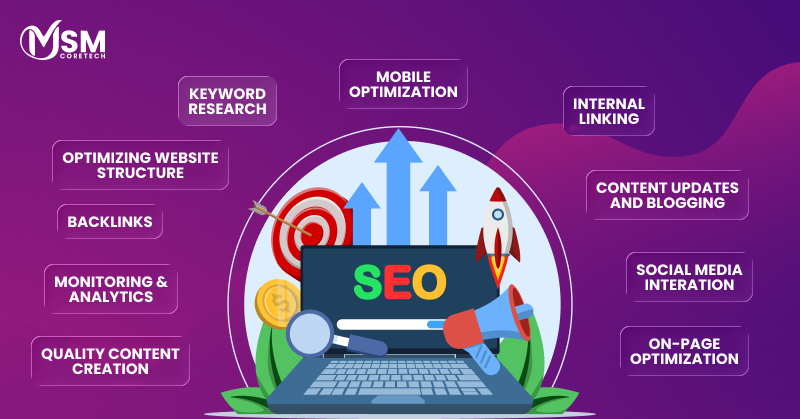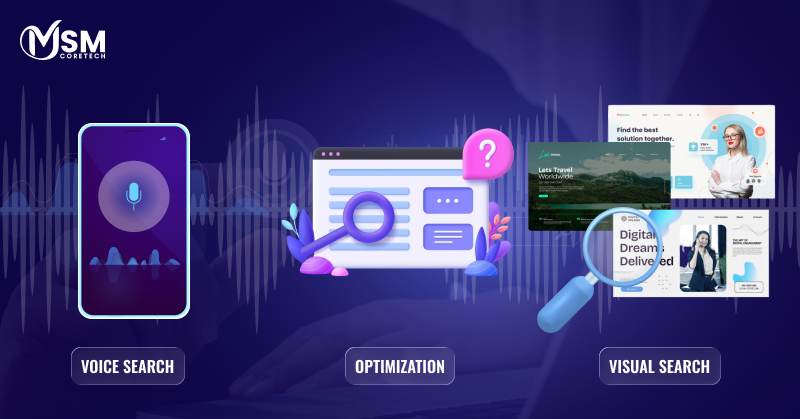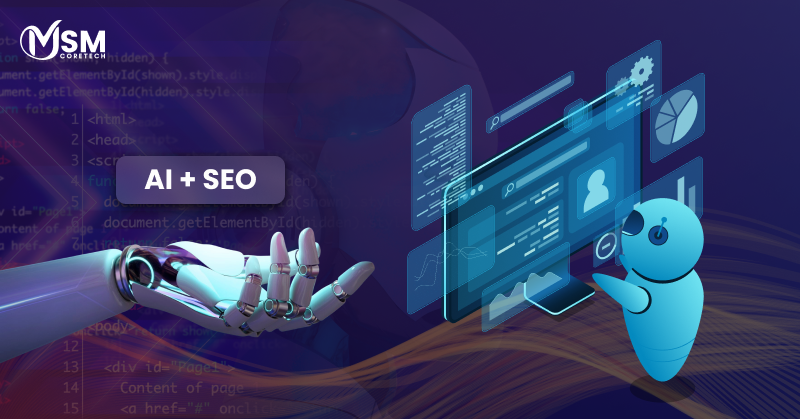Smarter Marketing, Stronger Decisions—Powered by AI

Artificial intelligence (AI) is no longer just a modern term, but it is already powering over 80% of customer interactions today.
Businesses that go with AI tools like chatbots, marketing automation workflows, and predictive analytics are getting ahead, not just in efficiency but in real and clear-to-see growth. A report by Salesforce says that 84% of marketers are already using AI, and companies using AI-powered customer support have seen a major drop in response times and an increase in customer satisfaction.
AI is not just a tool for big tech organisations now. It is something businesses of all sizes can use and benefit from. Even small and medium businesses can use it for smarter planning, better customer experiences, and increased marketing performance by using some marketing AI tools.
In this blog, we are going to explore why AI is reshaping marketing methods, how it solves actual business challenges, and where it is moving towards.
What Exactly Is AI? A Simple Breakdown
Artificial Intelligence, or AI, is a tech innovation in computing that educates computers to understand and follow human engagement and behaviour. Looking at the numbers and data we provide, AI can also create a new intelligent machine that processes, reacts, and acts the same way humans do.
AI can do technically complex and customised activities such as robotics, voice and image processing, natural language recognition, analytical thinking, and many more. We can say that AI is the set of various technologies skilled in executing tasks that need human intelligence. When used in regular business processes, these technologies can understand, do, and deliver with human-style thinking. It allows machines to think and act like humans, which saves time and money in business.
AI offers unmatched opportunities for a wide range of business sectors. Every industry mentioned is both fascinated and afraid of the commencement of AI because they are capable of making machines and devices that can think and react like humans. This technology is often seen as the next phase of the industrial revolution. AI and ML are showing they can handle many of the complex problems we face today.
Also, it may help solve the outlook of future problems. AI is all about helping machines think and understand like us (humans). It can find patterns, make decisions, and even improve by learning from its own mistakes. This self-correction is what makes AI so useful. It does not just follow rules; it gets better over time.
AI tracks user data to make sense of buying habits and upcoming changes in the market. AI is great at finding trends and making predictions, so it is no surprise that businesses around the world use it to attract their sales and marketing plans and drive more sales.
Most AI in marketing these days works on machine learning. It helps with things like suggesting the right products, figuring out which promotion channels work best, calculating how long a customer might stick around, and grouping people with similar interests so campaigns feel more personal.
Key Challenges Businesses Face Today
It is important to understand what the major challenges are that are holding many businesses back today before we know more about how AI helps. Running ads, sending emails, and managing customer data are common blockers that slow your growth and chip away at your return on investment (ROI).
Inefficient Targeting
There are some marketing companies that still go with a hunch. If your business doesn’t have an accurate audience segmentation, businesses miss out on reaching the right people at the right time, which leads to wasted effort and poor results.
Delayed Decisions
Speed is everything when the marking is this fast. Unfortunately, many teams still take weeks to adjust marketing campaigns or study and react to customer behaviour. By the time changes go live, the moment has passed.
Data Overload
Companies usually have a bucket full of customer data, but turning that data into usable insights is a tough task. And when tools don’t compliment each other and systems are a mess, it is nearly impossible to know what is really driving results.
High Costs
When you spend extra on ads, content, or any marketing tools without getting any positive results, it means you have wasted your resources and gotten a poor return on investments. Marketing costs can go out of control without clear performance data or smart optimization.
Need for Artificial Intelligence in Marketing
AI is a powerful tool that fits right into a company’s content strategy and helps take it to the next level. This technology is a broad field that covers every tool, from natural language processing and machine learning models to deep learning, computer vision, and many more.
Machine learning is changing the game in digital marketing because it can make sense of complex data and help you uncover insights you might have missed. As a result, it helps marketing teams run analyses based on needs, which includes accurate lead scoring.
Companies using AI save time and focus on different aspects of marketing and sales. As we know, AI is a technological evolution (vast and still going) with serious outcomes, and it results in marketing and sales to promote fresh thinking and improve productivity in the coming years.
Marketers can now use creative AI to check more detailed consumer data and better understand how to divide into segments and drive customers to the next stop in their journey and provide them with the best experience. They can increase return on investments without spending on ineffective campaigns by closely going through consumer data and knowing what they truly need. They can also prevent wasting time on advertising that discomfits clients.
AI can customise marketing in many possible ways. There are many companies that are already using AI to fulfil the custom needs of what their customers are really looking for to create different things like personalised email, websites, emails, social media services and strategies.
One of the main goals of AI is to take over tasks that used to require human thinking so things get done faster, more accurately, and without constant human effort. This also lowers the need for labour resources required by an organisation to initiate a project or the amount of time an individual must dedicate to routine tasks and allows for efficiency benefits when combined with smart CRM integration.
Importance of Artificial Intelligence in Strategic Thinking
Artificial intelligence is changing the decision making pattern of businesses. It turns large data into clear and sorted insights. With the help of advanced machine learning models, AI can read complicated patterns and trends to provide faster and smarter recommendations that are far beyond human capacity.
In the competitive market, speed is one of its biggest advantages and AI reduces the time spent on manual analysis. This allows teams to make decisions instantly. Providing quick responses gives businesses the advantage of adjusting campaigns or refining targeting.
It’s important to get things right and to be precise. AI finds signals and relations between different data to reduce errors and increase the quality of decisions. It’s powerful in lead scoring, where precise predictions help teams focus on valuable prospects.
AI also brings consistency when it comes to marketing. AI follows the same logic every time. Unlike human decisions, which can change from person to person or moment to moment. It helps keep decisions consistent, fair, and more efficient. AI provides smart CRM integration, which helps businesses keep information exchanged across teams. Companies today are using creative AI to test messaging and create content and even make strategies (which are backed by real data from users).
To sum up, if you think AI is here to replace humans, then it cannot. AI is just helping humans to make stronger and faster decisions that are more accurate and more driven by data.
AI tools for small business marketing
AI technologies are now used across every aspect of marketing. It has also changed the way different brands understand their audiences, create content, and deliver custom experiences. These applications are not just trends but more like core requirements that give a fresh take on customer engagement and drive smarter marketing investments. Here are some of the most impactful user applications of AI in today’s marketing environment.
Marketing Automation Workflows
AI helps different brands to deliver custom content, offers, and experiences to individual users based on their past interactions, demographics, and predicted behaviour. This level of personalisation (once limited by time) can now be executed at scale through active content generation and automated decision engines. AI makes sure that every customer interaction needs to be one of a kind while engaging with a customised product suggestion or getting a personalised email subject line. This helps get people more interested, leads to more conversions, and makes customers generally happier with their experience.
AI Content Generation Tools
There are many tools powered by AI that can help in generating written, visual, or even video content. It helps marketers save time without losing consistency or quality in their work. AI content tools smoothen the whole creative process, be it creating blog posts and social media captions or creating product descriptions and marketing copy. In addition to this, AI can pick content feeds or suggestions based on user preferences, behaviours, or any feedback to make sure the content is more engaging and targeted communication. It does not just makes things easier for content teams but also keeps the content flowing, stays true to the brand’s voice, and actually speaks to what customers care about.
Predictive Analytics for E-commerce
AI can estimate what the next customer actions are going to be, what the campaign performance will be, and market trends using the old data. In e-commerce marketing, these predictive capabilities improve both organic and paid results by helping businesses anticipate customer behavior, optimize targeting, and refine strategies for better ROI.. This projection strength helps marketers improve marketing budgets, adjust strategies in advance, and assign resources more effectively to maximise return on investment (ROI).
For example, these analytics can help find:
- Which leads are most likely to convert
- When customers are likely to make a purchase
- What trends may influence future demand
These are some tools that help businesses make clearer decisions, lower all the risks, and stay ahead of a market that is changing every day.
AI Chatbot Development
AI drastically smoothens the entire process of buying digital ad space by automating bidding strategies instantly. This results in more efficient spending, better targeting, and more ad relevance, and the marketing dollar is thus spent more effectively. The programmatic platforms look at AI algorithms for deciding the most suitable time, place, and audience for each ad and then adjusting the bid according to several performance measures and user behaviour. This reduces manual interference and allows campaigns to always strive for maximum impact.
AI-Powered Customer Support
It is presently transforming every face of customer service to make it faster, smarter, and scalable. Now common queries can be generated and problems sorted out while providing instant feedback in the least amount of time, thanks to AI-enabled support engines like intelligent chatbots and virtual assistants. They work without human agents providing input. These do not use conventional script-based language.
Rather, they use natural language tone to recognise context and intention and thus provide more meaningful and relevant responses. Setting the pace, AI support systems learn from past interactions and improve accuracy and tone, integrating with CRM systems to offer personalised services. This allowed lesser time waits, lowered support costs, and happier, content-to-sell customers.
Why AI Belongs in Your Marketing Strategy
AI is introduced to marketing; that doesn’t mean that it is just a technology upgrade but it is more than that. It is a smart move that helps teams work faster, connect better with customers, and make every campaign more effective. Here is how AI makes a difference:
1. Saving Time with Smart Tools of Automation -
AI automates all tedious and repetitive functions, such as data analysis, social media posting, or audience segmentation, leaving the human team to pursue more important objectives. Software automation tools can automate lead nurturing and performance tracking so that the people can invest more time into creativity, strategy, and improving the customer journey.
2. Better Targeting -
Based on factors like behaviour, interests, and context, an AI can sift through an overwhelming volume of data to help you find the right person, who is not just a mere age or location. That is why you want to communicate messages offering real meaning that are well received and increase engagement, making it seem more personal for each customer.
3. Real Feel Personalization -
AI helps with making content, offers, and communication personalised in real time based on what people are doing and what they like. This may adjust a product suggestion or dynamically change the website in ways that would feel like an experience created just for them, building long-term trust and loyalty.
4. Clearer Insights and Better Results -
All your campaign insights are summarised and given to you by Al, which allows you to know how your content is doing. It tracks what is working and what is not and helps you adjust things as you go. This means smarter use of your money with better performance of the campaign and a clearer path to growth.
The Future of AI in Marketing
AI technology is growing at a fast pace, and its role is becoming a life changer in marketing. It is not just about automated processing or customised content anymore. It is now helping teams predict what is going to be the next action, connect with customers in real time, and even work together with more creativity.
In the coming times, artificial intelligence is going to play a more strategy-based role in terms of creating any idea or content or creating customer experience or even reacting automatically to user interactions. Marketing folks are now expecting AI to predict clients needs in advance, give a convincing story, and collaborate with humans to generate attractive content.
As generative AI or AI voiceovers grow and the access to these tools is easy for users, these are changing the whole structure of how bands are connecting with their customers. As these technologies are growing, marketing is going to be more about providing smooth, simple-to-understand, and customised user experiences. To stay ahead, teams need to keep up with what is changing and be ready to adapt to what is new. They should be active in continuous learning and use AI tools while both prioritising business and staying accountable. Getting on board with these changes now puts your business in a strong spot to lead the way in tomorrow’s marketing world.
To Sum It Up
Artificial intelligence is not just some future wave that will come and go. It is now a necessity in the market. The technology is already changing how businesses do the marketing, support their customers, and make different decisions. AI tools are now making everyday work faster, easier, and more effective by automating monotonous tasks. This helps teams understand their crowd better.
MSM Coretech helps businesses to use AI (the best possible way) in marketing for more real and practical results. Our solutions are made to make technology work for you and not the other way around, be it building smarter customer support, boosting your marketing strategy, or making sense of your data.
So if you want to level up your business with AI, now is the right time. Do not wait until it is standard. Get ahead while your competitors are still figuring it out. Talk to us at MSM Coretech and let’s build something smarter together.
Related Blogs

Top 10 SEO Strategies to Boost Website Traffic in 2026
Boost your website’s visibility in 2026 with these 10 proven SEO strategies. Discover how to increase organic traffic, improve search rankings, enhance user experience, and build a sustainable online presence in an ever-evolving digital landscape
Read More

Voice Search & Accessibility: Preparing Websites for 2026 Search Landscape
Voice search and accessibility will shape the 2026 search landscape. This guide explains how businesses can optimize websites for natural-language queries, AI-driven search behavior, and inclusive digital experiences that meet global accessibility standards.
Read More

Can AI Improve Your SEO Strategy? A Complete 2026 Guide
See how AI upgrades your 2026 SEO strategy. Discover smart tools, practical tactics, and data-driven methods to boost rankings and traffic.
Read More



